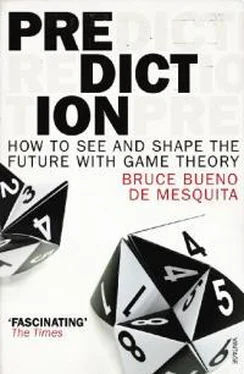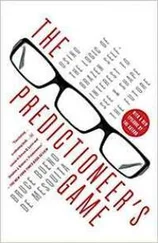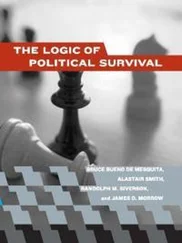Many rational acts impose short-term costs on the doer with the expectation of longer-term gains. That’s true of tipping, gift giving, flushing public toilets, not littering, and lots more. Sure, you might leave a tip even though you don’t expect to be in the particular restaurant again. Tipping, however, like gift giving, is a social norm that has arisen and taken hold because we have learned that its effects on the expectations of others (waiters, dinner party hosts) are important to making our own lives a little happier and easier. If waiters thought they weren’t going to get a tip and yet continued to be paid poorly, then it’s a good bet that service would be much worse in every restaurant. Studies show, for instance, that customer satisfaction with service does not help predict the restaurants people choose in southern China. 5Tipping is illegal in China (which is not to say that it never happens, but it isn’t expected). It is good to keep in mind that people act on expectations. It seems that the quality of service doesn’t vary much between restaurants in southern China, because the service ethic just isn’t guided by anticipated rewards for good service. Take away the expectation of tips, and the waitstaff is motivated by something other than the customers’ interests and the waiters’ rewards for satisfying those interests.
Tipping, gift giving, and, yes, flushing the toilet create good expectations that make each of us better off most of the time even if they cost a little at the moment. Sure, we could free-ride on the good acts of others, save a little money or the little bit of effort it takes to flush a toilet or throw litter in the garbage can instead of on the street, but most of us would feel bad about ourselves if we did that. The urge to feel good about ourselves—not to take the risk of offending others and not to bear the cost of their reaction—is sufficient to induce us to behave in a socially appropriate way. For the few misanthropes who prefer to save the money that a tip or a gift costs or the effort that flushing a toilet costs, well, they are behaving rationally too. They aren’t concerned about feeling like lowlifes. They value the savings from their poor behavior more than goodwill or long-term good results. That’s why there really is no accounting for taste. Rationality is, as I said, about doing what you believe is in your own interest; it doesn’t impose interests on us.
So what does constitute irrationality in an applied game theorist’s world? A person is irrational if, returning to the example of ice cream flavors, all of the following are true: she likes strawberry ice cream better than chocolate; strawberry ice cream costs no more than chocolate ice cream; strawberry ice cream is readily available for purchase; and still she goes and buys chocolate ice cream for herself. In such a case, I might wonder whether she had eaten so much strawberry ice cream recently that she wanted a change (a preference for variety over constancy, adding another dimension to the things preferred that was not included on my list) or something like that, but if those sorts of considerations are absent, then a strawberry lover is expected to eat strawberry ice cream when everything else is equal.
All of this is to say that, really, the only people who are ruled out by assuming rationality are very little children and perhaps schizophrenics. Little children—most especially two-year-olds—and schizophrenics sometimes act as if their preferences change every few seconds. One minute they want strawberry and the next it’s the worst thing in the world. That sort of flip-flopping in individual preferences is hazardous for those who want to predict or engineer people’s choices. Reasoning with people who flip-flop all the time is all but impossible. They’re not committed to being logically consistent in what they say, want, or do.
Nature may not abhor a vacuum, but game theory definitely abhors logical inconsistency. If you allow the possibility that what an individual really wants changes all the time, moment to moment, then you can claim that anything they do and anything they get fits in with (or contradicts) their interests. That certainly won’t lead to good predictions or good engineering, and besides, it just isn’t any fun. It takes all of the challenge out of working out what people are likely to do.
WHAT IS THE OTHER GUY’S LOGIC (NOT HIS LANGUAGE)?
On account of the above, it may have become readily apparent to you that game theory alerts us to be careful in how we express and understand our interests and those of others. It’s easy to make logical mistakes, and they can be hard to spot, which can often disguise or obscure the meaning of the thinking and actions of individuals. That is why game theorists use mathematics to work out what people are likely to do.
Ordinary everyday language can be awfully vague and ambiguous. A friend of mine is a linguist. One of his favorite sentences goes like this: “I saw the man with a telescope.” Now that is one vague sentence. Did I look through a telescope and spot a man, or did I look over at a man who was carrying a telescope, or does the sentence mean something entirely different? You can see why linguists like this sentence. It gives them an interesting problem to work out. I don’t like sentences like that. I like sentences written with mathematics (and so do many linguists). They don’t produce poetic beauty or double entendres, which makes them boring, but it also gives them a great virtue. In English, saying things are equal often means “more or less”; in math, “equal” means just that, equal, not almost equal or usually equal, but plain simple equal.
We humans have devised all sorts of clever ways to cover up sloppy or slippery arguments. As I am fond of telling my students, my suspicions are aroused by sentences beginning with clauses like “It stands to reason that” or “It is a fact that. . . .” Usually, what follows the statement “It stands to reason that” does not. The clause is being asked to substitute for the hard work of showing that a conclusion follows logically from the assumptions. Likewise, “It is a fact that” generally precedes an expression of opinion rather than a fact. Watch out for these. This sort of rhetoric can easily take a person down a wrong line of thinking by accepting as true something that might be true and then again might not be.
Consider, for example, what policies you think our national leaders should follow to protect and enhance our national interest. When we think carefully about how to further the national interest, it becomes evident that sometimes things that seem obviously true are not, and that a little logic can go a long way to clarify our understanding.
It is commonplace to think that foreign policy should advance the national interest. This idea is so widespread that we accept it as an obvious truth, but is it? We hardly ever pause to ask how we know what is in the national interest. Most of the time, we seem to mean that policies benefiting the great majority of people are policies in the national interest. Secure borders to prevent foreign invasions or illegal immigration are thought to be in the national interest. Economic policies that make citizens more prosperous are thought to be in the national interest. Yet we also know that money spent on defending our national security is money that is not spent on building the economy. There is a trade-off between the two. What, then, is the right balance between national security and economic security that ensures the national interest?
Imagine that American citizens are divided into three equally sized groups. One group wants to spend more on national defense and to adopt more free-trade programs. Call these people Republicans. Another wants to cut defense spending and shift trade policy away from the status quo in order to better protect American industry against foreign competition. Call them Democrats. A third wants to spend more on national defense and also to greatly increase tariffs to keep our markets from being flooded with cheap foreign-made goods. Call this faction blue-collar independents. With all of these voters in mind, what defense and trade policy can rightfully call itself “the national interest”? The answer, as seen in figure 2.1, is that any policy can legitimately lay claim to being in—or against—the national interest.
Читать дальше











